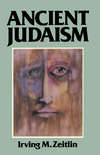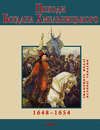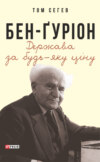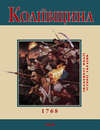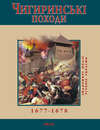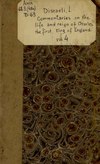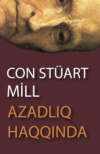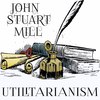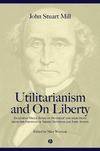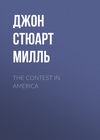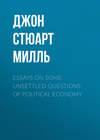Kitabı oku: «Autobiography», sayfa 9
My father's tone of thought and feeling, I now felt myself at a great distance from: greater, indeed, than a full and calm explanation and reconsideration on both sides, might have shown to exist in reality. But my father was not one with whom calm and full explanations on fundamental points of doctrine could be expected, at least with one whom he might consider as, in some sort, a deserter from his standard. Fortunately we were almost always in strong agreement on the political questions of the day, which engrossed a large part of his interest and of his conversation. On those matters of opinion on which we differed, we talked little. He knew that the habit of thinking for myself, which his mode of education had fostered, sometimes led me to opinions different from his, and he perceived from time to time that I did not always tell him how different. I expected no good, but only pain to both of us, from discussing our differences: and I never expressed them but when he gave utterance to some opinion or feeling repugnant to mine, in a manner which would have made it disingenuousness on my part to remain silent.
It remains to speak of what I wrote during these years, which, independently of my contributions to newspapers, was considerable. In 1830 and 1831 I wrote the five Essays since published under the title of Essays on some Unsettled Questions of political Economy, almost as they now stand, except that in 1833 I partially rewrote the fifth Essay. They were written with no immediate purpose of publication; and when, some years later, I offered them to a publisher, he declined them. They were only printed in 1844, after the success of the System of Logic. I also resumed my speculations on this last subject, and puzzled myself, like others before me, with the great paradox of the discovery of new truths by general reasoning. As to the fact, there could be no doubt. As little could it be doubted, that all reasoning is resolvable into syllogisms, and that in every syllogism the conclusion is actually contained and implied in the premises. How, being so contained and implied, it could be new truth, and how the theorems of geometry, so different in appearance from the definitions and axioms, could be all contained in these, was a difficulty which no, one, I thought, had sufficiently felt, and which, at all events, no one had succeeded in clearing up. The explanations offered by Whately and others, though they might give a temporary satisfaction, always, in my mind, left a mist still hanging over the subject. At last, when reading a second or third time the chapters on Reasoning in the second volume of Dugald Stewart, interrogating myself on every point, and following out, as far as I knew how, every topic of thought which the book suggested, I came upon an idea of his respecting the use of axioms in ratiocination, which I did not remember to have before noticed, but which now, in meditating on it, seemed to me not only true of axioms, but of all general propositions whatever, and to be the key of the whole perplexity. From this germ grew the theory of the Syllogism propounded in the Second Book of the Logic; which I immediately fixed by writing it out. And now, with greatly increased hope of being able to produce a work on Logic, of some originality and value, I proceeded to write the First Book, from the rough and imperfect draft I had already made. What I now wrote became the basis of that part of the subsequent Treatise; except that it did not contain the Theory of Kinds, which was a later addition, suggested by otherwise inextricable difficulties which met me in my first attempt to work out the subject of some of the concluding chapters of the Third Book. At the point which I had now reached I made a halt, which lasted five years. I had come to the end of my tether; I could make nothing satisfactory of Induction, at this time. I continued to read any book which seemed to promise light on the subject, and appropriated, as well as I could, the results; but for a long time I found nothing which seemed to open to me any very important vein of meditation.
In 1832 I wrote several papers for the first series of Tait's Magazine, and one for a quarterly periodical called the Jurist, which had been founded, and for a short time carried on, by a set of friends, all lawyers and law reformers, with several of whom I was acquainted. The paper in question is the one on the rights and duties of the State respecting Corporation and Church Property, now standing first among the collected Dissertations and Discussions; where one of my articles in Tait, "The Currency Juggle," also appears. In the whole mass of what I wrote previous to these, there is nothing of sufficient permanent value to justify reprinting. The paper in the Jurist, which I still think a very complete discussion of the rights of the State over Foundations, showed both sides of my opinions, asserting as firmly as I should have done at any time, the doctrine that all endowments are national property, which the government may and ought to control; but not, as I should once have done, condemning endowments in themselves, and proposing that they should be taken to pay off the national debt. On the contrary, I urged strenuously the importance of a provision for education, not dependent on the mere demand of the market, that is, on the knowledge and discernment of average parents, but calculated to establish and keep up a higher standard of instruction than is likely to be spontaneously demanded by the buyers of the article. All these opinions have been confirmed and strengthened by the whole of my subsequent reflections.
CHAPTER VI.
COMMENCEMENT OF THE MOST VALUABLE FRIENDSHIP OF MY LIFE. MY FATHER'S DEATH. WRITINGS AND OTHER PROCEEDINGS UP TO 1840
It was the period of my mental progress which I have now reached that I formed the friendship which has been the honour and chief blessing of my existence, as well as the source of a great part of all that I have attempted to do, or hope to effect hereafter, for human improvement. My first introduction to the lady who, after a friendship of twenty years, consented to become my wife, was in 1830, when I was in my twenty-fifth and she in her twenty-third year. With her husband's family it was the renewal of an old acquaintanceship. His grandfather lived in the next house to my father's in Newington Green, and I had sometimes when a boy been invited to play in the old gentleman's garden. He was a fine specimen of the old Scotch puritan; stern, severe, and powerful, but very kind to children, on whom such men make a lasting impression. Although it was years after my introduction to Mrs. Taylor before my acquaintance with her became at all intimate or confidential, I very soon felt her to be the most admirable person I had ever known. It is not to be supposed that she was, or that any one, at the age at which I first saw her, could be, all that she afterwards became. Least of all could this be true of her, with whom self-improvement, progress in the highest and in all senses, was a law of her nature; a necessity equally from the ardour with which she sought it, and from the spontaneous tendency of faculties which could not receive an impression or an experience without making it the source or the occasion of an accession of wisdom. Up to the time when I first saw her, her rich and powerful nature had chiefly unfolded itself according to the received type of feminine genius. To her outer circle she was a beauty and a wit, with an air of natural distinction, felt by all who approached her: to the inner, a woman of deep and strong feeling, of penetrating and intuitive intelligence, and of an eminently meditative and poetic nature. Married at an early age to a most upright, brave, and honourable man, of liberal opinions and good education, but without the intellectual or artistic tastes which would have made him a companion for her, though a steady and affectionate friend, for whom she had true esteem and the strongest affection through life, and whom she most deeply lamented when dead; shut out by the social disabilities of women from any adequate exercise of her highest faculties in action on the world without; her life was one of inward meditation, varied by familiar intercourse with a small circle of friends, of whom one only (long since deceased) was a person of genius, or of capacities of feeling or intellect kindred with her own, but all had more or less of alliance with her in sentiments and opinions. Into this circle I had the good fortune to be admitted, and I soon perceived that she possessed in combination, the qualities which in all other persons whom I had known I had been only too happy to find singly. In her, complete emancipation from every kind of superstition (including that which attributes a pretended perfection to the order of nature and the universe), and an earnest protest against many things which are still part of the established constitution of society, resulted not from the hard intellect, but from strength of noble and elevated feeling, and co-existed with a highly reverential nature. In general spiritual characteristics, as well as in temperament and organisation, I have often compared her, as she was at this time, to Shelley: but in thought and intellect, Shelley, so far as his powers were developed in his short life, was but a child compared with what she ultimately became. Alike in the highest regions of speculation and in the smaller practical concerns of daily life, her mind was the same perfect instrument, piercing to the very heart and marrow of the matter; always seizing the essential idea or principle. The same exactness and rapidity of operation, pervading as it did her sensitive as well as her mental faculties, would, with her gifts of feeling and imagination, have fitted her to be a consummate artist, as her fiery and tender soul and her vigorous eloquence would certainly have made her a great orator, and her profound knowledge of human nature and discernment and sagacity in practical life, would, in the times when such a carričre was open to women, have made her eminent among the rulers of mankind. Her intellectual gifts did but minister to a moral character at once the noblest and the best balanced which I have ever met with in life. Her unselfishness was not that of a taught system of duties, but of a heart which thoroughly identified itself with the feelings of others, and often went to excess in consideration for them by imaginatively investing their feelings with the intensity of its own. The passion of justice might have been thought to be her strongest feeling, but for her boundless generosity, and a lovingness ever ready to pour itself forth upon any or all human beings who were capable of giving the smallest feeling in return. The rest of her moral characteristics were such as naturally accompany these qualities of mind and heart: the most genuine modesty combined with the loftiest pride; a simplicity and sincerity which were absolute, towards all who were fit to receive them; the utmost scorn of whatever was mean and cowardly, and a burning indignation at everything brutal or tyrannical, faithless or dishonourable in conduct and character, while making the broadest distinction between mala in se and mere mala prohibita– between acts giving evidence of intrinsic badness in feeling and character, and those which are only violations of conventions either good or bad, violations which, whether in themselves right or wrong, are capable of being committed by persons in every other respect lovable or admirable.
To be admitted into any degree of mental intercourse with a being of these qualities, could not but have a most beneficial influence on my development; though the effect was only gradual, and many years elapsed before her mental progress and mine went forward in the complete companionship they at last attained. The benefit I received was far greater than any which I could hope to give; though to her, who had at first reached her opinions by the moral intuition of a character of strong feeling, there was doubtless help as well as encouragement to be derived from one who had arrived at many of the same results by study and reasoning: and in the rapidity of her intellectual growth, her mental activity, which converted everything into knowledge, doubtless drew from me, as it did from other sources, many of its materials. What I owe, even intellectually, to her, is in its detail, almost infinite; of its general character a few words will give some, though a very imperfect, idea.
With those who, like all the best and wisest of mankind, are dissatisfied with human life as it is, and whose feelings are wholly identified with its radical amendment, there are two main regions of thought. One is the region of ultimate aims; the constituent elements of the highest realizable ideal of human life. The other is that of the immediately useful and practically attainable. In both these departments, I have acquired more from her teaching, than from all other sources taken together. And, to say truth, it is in these two extremes principally, that real certainty lies. My own strength lay wholly in the uncertain and slippery intermediate region, that of theory, or moral and political science: respecting the conclusions of which, in any of the forms in which I have received or originated them, whether as political economy, analytic psychology, logic, philosophy of history, or anything else, it is not the least of my intellectual obligations to her that I have derived from her a wise scepticism, which, while it has not hindered me from following out the honest exercise of my thinking faculties to whatever conclusions might result from it, has put me on my guard against holding or announcing these conclusions with a degree of confidence which the nature of such speculations does not warrant, and has kept my mind not only open to admit, but prompt to welcome and eager to seek, even on the questions on which I have most meditated, any prospect of clearer perceptions and better evidence. I have often received praise, which in my own right I only partially deserve, for the greater practicality which is supposed to be found in my writings, compared with those of most thinkers who have been equally addicted to large generalizations. The writings in which this quality has been observed, were not the work of one mind, but of the fusion of two, one of them as pre-eminently practical in its judgments and perceptions of things present, as it was high and bold in its anticipations for a remote futurity. At the present period, however, this influence was only one among many which were helping to shape the character of my future development: and even after it became, I may truly say, the presiding principle of my mental progress, it did not alter the path, but only made me move forward more boldly, and, at the same time, more cautiously, in the same course. The only actual revolution which has ever taken place in my modes of thinking, was already complete. My new tendencies had to be confirmed in some respects, moderated in others: but the only substantial changes of opinion that were yet to come, related to politics, and consisted, on one hand, in a greater approximation, so far as regards the ultimate prospects of humanity, to a qualified Socialism, and on the other, a shifting of my political ideal from pure democracy, as commonly understood by its partisans, to the modified form of it, which is set forth in my Considerations on Representative Government.
This last change, which took place very gradually, dates its commencement from my reading, or rather study, of M. de Tocqueville's Democracy in America, which fell into my hands immediately after its first appearance. In that remarkable work, the excellences of democracy were pointed out in a more conclusive, because a more specific manner than I had ever known them to be, even by the most enthusiastic democrats; while the specific dangers which beset democracy, considered as the government of the numerical majority, were brought into equally strong light, and subjected to a masterly analysis, not as reasons for resisting what the author considered as an inevitable result of human progress, but as indications of the weak points of popular government, the defences by which it needs to be guarded, and the correctives which must be added to it in order that while full play is given to its beneficial tendencies, those which are of a different nature may be neutralized or mitigated. I was now well prepared for speculations of this character, and from this time onward my own thoughts moved more and more in the same channel, though the consequent modifications in my practical political creed were spread over many years, as would be shown by comparing my first review of Democracy in America, written and published in 1835, with the one in 1840 (reprinted in the Dissertations), and this last, with the Considerations on Representative Government.
A collateral subject on which also I derived great benefit from the study of Tocqueville, was the fundamental question of centralization. The powerful philosophic analysis which he applied to American and to French experience, led him to attach the utmost importance to the performance of as much of the collective business of society, as can safely be so performed, by the people themselves, without any intervention of the executive government, either to supersede their agency, or to dictate the manner of its exercise. He viewed this practical political activity of the individual citizen, not only as one of the most effectual means of training the social feelings and practical intelligence of the people, so important in themselves and so indispensable to good government, but also as the specific counteractive to some of the characteristic infirmities of democracy, and a necessary protection against its degenerating into the only despotism of which, in the modern world, there is real danger – the absolute rule of the head of the executive over a congregation of isolated individuals, all equals but all slaves. There was, indeed, no immediate peril from this source on the British side of the channel, where nine-tenths of the internal business which elsewhere devolves on the government, was transacted by agencies independent of it; where centralization was, and is, the subject not only of rational disapprobation, but of unreasoning prejudice; where jealousy of Government interference was a blind feeling preventing or resisting even the most beneficial exertion of legislative authority to correct the abuses of what pretends to be local self-government, but is, too often, selfish mismanagement of local interests, by a jobbing and borné local oligarchy. But the more certain the public were to go wrong on the side opposed to centralization, the greater danger was there lest philosophic reformers should fall into the contrary error, and overlook the mischiefs of which they had been spared the painful experience. I was myself, at this very time, actively engaged in defending important measures, such as the great Poor Law Reform of 1834, against an irrational clamour grounded on the anti-centralization prejudice: and had it not been for the lessons of Tocqueville, I do not know that I might not, like many reformers before me, have been hurried into the excess opposite to that, which, being the one prevalent in my own country, it was generally my business to combat. As it is, I have steered carefully between the two errors, and whether I have or have not drawn the line between them exactly in the right place, I have at least insisted with equal emphasis upon the evils on both sides, and have made the means of reconciling the advantages of both, a subject of serious study.
In the meanwhile had taken place the election of the first Reformed Parliament, which included several of the most notable of my Radical friends and acquaintances – Grote, Roebuck, Buller, Sir William Molesworth, John and Edward Romilly, and several more; besides Warburton, Strutt, and others, who were in parliament already. Those who thought themselves, and were called by their friends, the philosophic Radicals, had now, it seemed, a fair opportunity, in a more advantageous position than they had ever before occupied, for showing what was in them; and I, as well as my father, founded great hopes on them. These hopes were destined to be disappointed. The men were honest, and faithful to their opinions, as far as votes were concerned; often in spite of much discouragement. When measures were proposed, flagrantly at variance with their principles, such as the Irish Coercion Bill, or the Canada Coercion in 1837, they came forward manfully, and braved any amount of hostility and prejudice rather than desert the right. But on the whole they did very little to promote any opinions; they had little enterprise, little activity: they left the lead of the Radical portion of the House to the old hands, to Hume and O'Connell. A partial exception must be made in favour of one or two of the younger men; and in the case of Roebuck, it is his title to permanent remembrance, that in the very first year during which he sat in Parliament, he originated (or re-originated after the unsuccessful attempt of Mr. Brougham) the parliamentary movement for National Education; and that he was the first to commence, and for years carried on almost alone, the contest for the self-government of the Colonies. Nothing, on the whole equal to these two things, was done by any other individual, even of those from whom most was expected. And now, on a calm retrospect, I can perceive that the men were less in fault than we supposed, and that we had expected too much from them. They were in unfavourable circumstances. Their lot was cast in the ten years of inevitable reaction, when, the Reform excitement being over, and the few legislative improvements which the public really called for having been rapidly effected, power gravitated back in its natural direction, to those who were for keeping things as they were; when the public mind desired rest, and was less disposed than at any other period since the Peace, to let itself be moved by attempts to work up the Reform feeling into fresh activity in favour of new things. It would have required a great political leader, which no one is to be blamed for not being, to have effected really great things by parliamentary discussion when the nation was in this mood. My father and I had hoped that some competent leader might arise; some man of philosophic attainments and popular talents, who could have put heart into the many younger or less distinguished men that would have been ready to join him – could have made them available, to the extent of their talents, in bringing advanced ideas before the public – could have used the House of Commons as a rostra or a teacher's chair for instructing and impelling the public mind; and would either have forced the Whigs to receive their measures from him, or have taken the lead of the Reform party out of their hands. Such a leader there would have been, if my father had been in Parliament. For want of such a man, the instructed Radicals sank into a mere Côté Gauche of the Whig party. With a keen, and as I now think, an exaggerated sense of the possibilities which were open to the Radicals if they made even ordinary exertion for their opinions, I laboured from this time till 1839, both by personal influence with some of them, and by writings, to put ideas into their heads, and purpose into their hearts. I did some good with Charles Buller, and some with Sir William Molesworth; both of whom did valuable service, but were unhappily cut off almost in the beginning of their usefulness. On the whole, however, my attempt was vain. To have had a chance of succeeding in it, required a different position from mine. It was a task only for one who, being himself in Parliament, could have mixed with the Radical members in daily consultation, could himself have taken the initiative, and instead of urging others to lead, could have summoned them to follow.
What I could do by writing, I did. During the year 1833 I continued working in the Examiner with Fonblanque who at that time was zealous in keeping up the fight for Radicalism against the Whig ministry. During the session of 1834 I wrote comments on passing events, of the nature of newspaper articles (under the title "Notes on the Newspapers"), in the Monthly Repository, a magazine conducted by Mr. Fox, well known as a preacher and political orator, and subsequently as member of parliament for Oldham; with whom I had lately become acquainted, and for whose sake chiefly I wrote in his magazine. I contributed several other articles to this periodical, the most considerable of which (on the theory of Poetry), is reprinted in the "Dissertations." Altogether, the writings (independently of those in newspapers) which I published from 1832 to 1834, amount to a large volume. This, however, includes abstracts of several of Plato's Dialogues, with introductory remarks, which, though not published until 1834, had been written several years earlier; and which I afterwards, on various occasions, found to have been read, and their authorship known, by more people than were aware of anything else which I had written, up to that time. To complete the tale of my writings at this period, I may add that in 1833, at the request of Bulwer, who was just then completing his England and the English (a work, at that time, greatly in advance of the public mind), I wrote for him a critical account of Bentham's philosophy, a small part of which he incorporated in his text, and printed the rest (with an honourable acknowledgment), as an appendix. In this, along with the favourable, a part also of the unfavourable side of my estimation of Bentham's doctrines, considered as a complete philosophy, was for the first time put into print.
But an opportunity soon offered, by which, as it seemed, I might have it in my power to give more effectual aid, and at the same time, stimulus, to the "philosophic Radical" party, than I had done hitherto. One of the projects occasionally talked of between my father and me, and some of the parliamentary and other Radicals who frequented his house, was the foundation of a periodical organ of philosophic radicalism, to take the place which the Westminster Review had been intended to fill: and the scheme had gone so far as to bring under discussion the pecuniary contributions which could be looked for, and the choice of an editor. Nothing, however, came of it for some time: but in the summer of 1834 Sir William Molesworth, himself a laborious student, and a precise and metaphysical thinker, capable of aiding the cause by his pen as well as by his purse, spontaneously proposed to establish a Review, provided I would consent to be the real, if I could not be the ostensible, editor. Such a proposal was not to be refused; and the Review was founded, at first under the title of the London Review, and afterwards under that of the London and Westminster, Molesworth having bought the Westminster from its proprietor, General Thompson, and merged the two into one. In the years between 1834 and 1840 the conduct of this Review occupied the greater part of my spare time. In the beginning, it did not, as a whole, by any means represent my opinions. I was under the necessity of conceding much to my inevitable associates. The Review was established to be the representative of the "philosophic Radicals," with most of whom I was now at issue on many essential points, and among whom I could not even claim to be the most important individual. My father's co-operation as a writer we all deemed indispensable, and he wrote largely in it until prevented by his last illness. The subjects of his articles, and the strength and decision with which his opinions were expressed in them, made the Review at first derive its tone and colouring from him much more than from any of the other writers. I could not exercise editorial control over his articles, and I was sometimes obliged to sacrifice to him portions of my own. The old Westminster Review doctrines, but little modified, thus formed the staple of the Review; but I hoped by the side of these, to introduce other ideas and another tone, and to obtain for my own shade of opinion a fair representation, along with those of other members of the party. With this end chiefly in view, I made it one of the peculiarities of the work that every article should bear an initial, or some other signature, and be held to express the opinions solely of the individual writer; the editor being only responsible for its being worth publishing and not in conflict with the objects for which the Review was set on foot. I had an opportunity of putting in practice my scheme of conciliation between the old and the new "philosophic radicalism," by the choice of a subject for my own first contribution. Professor Sedgwick, a man of eminence in a particular walk of natural science, but who should not have trespassed into philosophy, had lately published his Discourse on the Studies of Cambridge, which had as its most prominent feature an intemperate assault on analytic psychology and utilitarian ethics, in the form of an attack on Locke and Paley. This had excited great indignation in my father and others, which I thought it fully deserved. And here, I imagined, was an opportunity of at the same time repelling an unjust attack, and inserting into my defence of Hartleianism and Utilitarianism a number of the opinions which constituted my view of those subjects, as distinguished from that of my old associates. In this I partially succeeded, though my relation to my father would have made it painful to me in any case, and impossible in a Review for which he wrote, to speak out my whole mind on the subject at this time.

